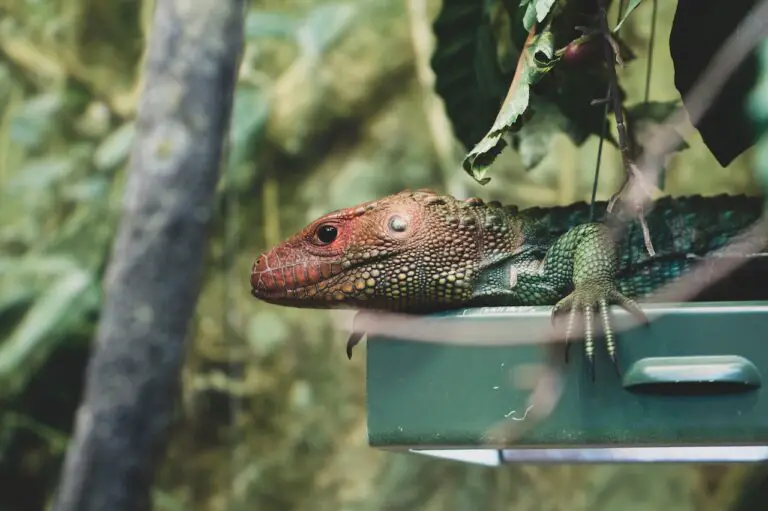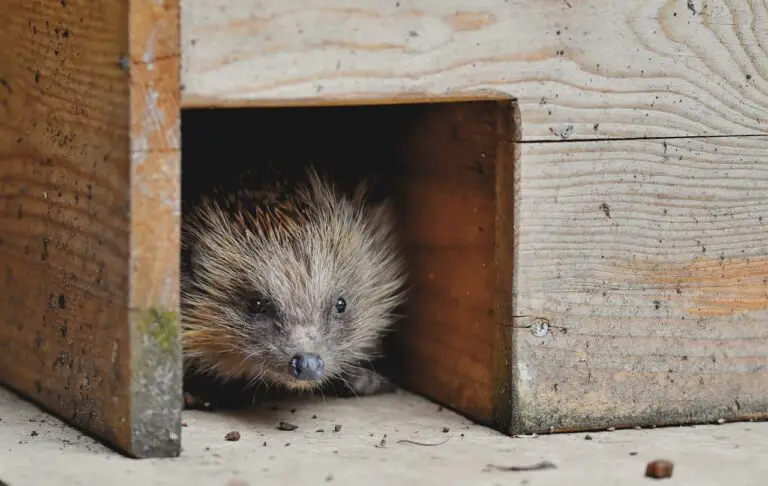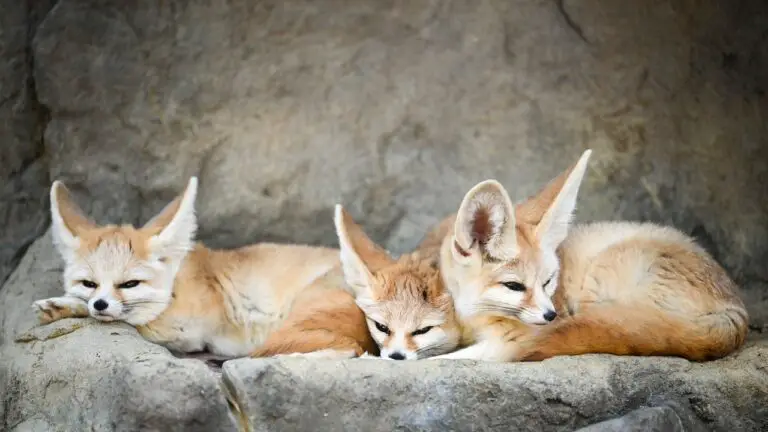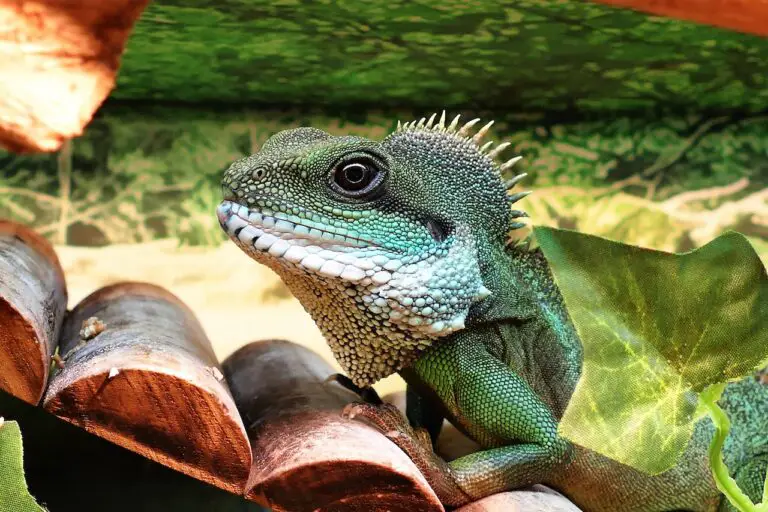Exotic Pet for Your Family: How to Choose the Right One
Deciding to get an exotic pet can be an exciting adventure for your family. However, choosing the right exotic pet requires careful consideration of your lifestyle, living situation, budget, and ability to properly care for the animal.
This article will guide you through the key factors to weigh when selecting an exotic pet for your home.
| Takeaway | Details |
|---|---|
| Assess motivations | Ensure wanting an exotic for companionship, not just novelty. They may not be cuddly. |
| Evaluate commitment | Exotics need lots of specialized daily care and a lifelong commitment. |
| Lifestyle factors | Choose pets that fit your family’s activity level, space, allergies, mess tolerance. |
| Legal restrictions | Research local exotic pet laws. Some are banned. Insurance may cost more. |
| Affordability | Habitat, food, vet bills are expensive. Budget adequately. Get exotic pet insurance. |
| Species | Good starter exotics include small birds, rodents, certain reptiles and aquatic animals. |
| Ethical sourcing | Ask breeders detailed questions. Never use unlicensed sellers. |
| Habitat preparation | Fully prepare enclosure ahead of time. Disinfect. |
| Exotic veterinarian | Establish a relationship with an experienced exotic vet nearby. |
| Pet proof | Secure enclosures. Remove hazards. Block hiding spots. |
| Slow introductions | Gradually introduce family and other pets to reduce stress. |
| Proper handling | Support fully, avoid squeezing, supervise kids interactions. |
| Emergency readiness | Have vet and emergency transport plan. Keep first aid kit and funds. |
| Ethical choices | Say no to species harmful to own or wild populations. |
Assess Your Motivations
Before considering specific animals, examine why you want an exotic pet. Common motivations include:
- Uniqueness: Many people seek exotic pets for the novelty and conversation piece. These animals attract attention and interest when you take them outdoors.
- Bonding: Some exotic pets like parrots can form close bonds and show affection to owners. Interacting with them can be more engaging than traditional pets.
- Learning: Caring for an exotic animal requires learning their specialized needs. You gain valuable knowledge and skills.
- Adventure: For some families, welcoming an exotic pet is embracing the unknown and unpredictable. It brings new adventures.
If your main motivation is to have a hands-on, interactive pet to cuddle and play with, an exotic may not be the best fit. Traditional domesticated pets are bred specifically for companionship and bonding. Make sure your reasons align with an exotic pet’s nature before choosing one.
Evaluate Your Commitment Level
Exotic pets require an intense, long-term commitment compared to cats and dogs. Before selection, honestly assess:
- Time investment: Most exotic pets need daily interaction and exercise. Can you commit consistent time each day?
- Special care: Exotic pets often have specialized diets, habitats, and health needs. Are you willing to provide attentive daily care?
- Vet access: Exotic vets are less common than traditional vets. Can you access and pay for exotic vet care?
- Lifespan: Some exotics like parrots live 40+ years. Are you ready for a lifelong commitment to the pet?
- Behavior challenges: Exotics sometimes have aggressive or destructive tendencies. Are you equipped to handle training and behavior issues?
If you cannot confidently answer yes to these considerations, an exotic pet may not suit your family at this time. Make sure you can fully commit before selection.
Choose an Animal Suited to Your Lifestyle
When ready to select an exotic pet, choose one that fits your family’s unique lifestyle and environment. Key factors to evaluate:
- Activity level: Very active exotics like sugar gliders need lots of space and stimulation. Low energy pets like chinchillas suit calmer households.
- Space requirements: Ensure your home has adequate space for the exotic pet’s habitat size. Some need entire rooms.
- Noise level: Noisy exotics like parrots may not work in apartments or sensitive family members. Opt for quieter choices.
- Allergies: Some exotics like guinea pigs can trigger allergies. Test interactions before selection.
- Messiness: Rats, ferrets, and hedgehogs tend to be messier than reptiles, fish, or birds. Assess your tolerance.
- Social needs: Highly social exotics like parrots suffer alone. Be sure you have time to interact.
Take your family’s lifestyle and environment into account when selecting the right exotic pet.
Understand Legal Restrictions
Certain exotic pets are outright illegal or restricted in some regions. Before selection, research:
- Local laws: Many municipalities ban ownership of exotics like monkeys, big cats, and venomous animals.
- Homeowner policies: Your homeowner insurance may prohibit housing exotics or charge higher premiums.
- Import regulations: Importing exotic pets across countries can be complex regarding quarantines and paperwork.
- Veterinary care: In some areas, few vets treat exotics, making care difficult.
Avoid selecting an exotic pet that is outright banned in your region. Also understand and prepare for any restrictions that apply to ownership.
Calculate Affordability
Exotic pets incur greater upfront and ongoing costs than cats and dogs. Realistically assess if exotic pet ownership fits your budget:
- Purchase price: The initial cost to purchase or adopt the exotic pet.
- Supplies & habitat: Proper housing, bedding, lighting, and other supplies. Often very pricey.
- Food costs: Some exotic foods are specialized, nutritionally balanced, and expensive.
- Vet bills: Exotic vet care costs significantly more than typical pets. Budget for exams and emergencies.
- Health insurance: Policies for exotics can provide peace of mind against big vet bills. Factor in this monthly cost.
- Boarding: Specialized exotic boarding facilities have daily fees for when you travel.
Take your time researching real costs and decide if exotic pet ownership fits your financial situation long-term. An exotic pet is a 10+ year financial commitment.
Select the Right Species
Once you’ve assessed your family’s suitability for an exotic pet, it’s time to select a specific species.
Here are popular exotic pets that make good family choices with the right commitment:
Birds
- Cockatiels: Small parrots, relatively quiet. Need large cages and lots of interaction. Lifespan 15-20 years.
- Parrotlets: Tiny, colorful parrots under 5 inches. Quieter than larger parrots. Lifespan 15-20 years.
- Finches: Affordable, colorful songbirds. Need flight cages. Social, good for kids. Lifespan 5-10 years.
- Canaries: Vibrant yellow songbirds. Gentle, less noisy. Need spacious flight cages. Lifespan 7-10 years.
Rodents
- Chinchillas: Nocturnal, quiet. Need multi-level enclosures and exercise. Lifespan 10-15 years.
- Guinea Pigs: Social, vocalize with squeaks. Require minimum 10-square-foot enclosure. Lifespan 5-7 years.
- Rats: Affectionate, intelligent. Need large wire cage and lots of free playtime. Lifespan 2-3 years.
- Hamsters: Solitary and nocturnal. Require minimum 24″ x 12″ cage. Lifespan 2-3 years.
Reptiles
- Bearded Dragons: Docile lizards, good for handling. Need vivarium with proper lighting and heat. Lifespan 5-10 years.
- Leopard Geckos: Small lizards with simple habitat needs. Require 20-gallon terrarium. Lifespan 10-20 years.
- Ball Pythons: Calm snakes that curl into balls. Require secured terrarium with heat gradient. Lifespan 20-30 years.
- Corn Snakes: Mild-mannered, easy to handle. Need 20+ gallon escape-proof terrarium. Lifespan 15-20 years.
Aquatic
- Freshwater Stingrays: Graceful swimmers that can be hand fed. Require large aquarium with strong filtration. Lifespan 5-10 years.
- Oranda Goldfish: Vibrant orange and white. Need at least 20-gallon aquarium. Social, peaceful. Lifespan 10-15 years.
- African Dwarf Frogs: Tiny, fully aquatic frogs. Need 5+ gallon aquarium with gentle filtration. Lifespan 5-10 years.
- Betta Fish: Vivid colors and flowing fins. Require minimum 3-gallons with low flow. Males must be separated. Lifespan 2-5 years.
Questions to Ask Breeders & Sellers
When sourcing your exotic pet, ask probing questions to ensure ethical breeding and excellent health:
- How old is the animal?
- What is its health history and has it been examined by a vet?
- What are you feeding the animal and in what amounts?
- What is the genetic background of the parents? Were they screened for genetic issues?
- Can I see where the animal was bred and raised? What are the conditions like?
- How is the animal’s temperament? Has it been socialized?
- Is the animal captive bred or wild caught?
- Are you a licensed exotic animal breeder in this state? May I see your license?
Avoid purchasing exotic pets from unlicensed online sellers or flea markets. Work with reputable, licensed breeders who can thoroughly answer these questions.
Prepare the Habitat in Advance
Before bringing your exotic pet home, fully prepare their habitat:
- Purchase the appropriately sized enclosure and ensure it is secure.
- Install all necessary lighting, heating, and humidity accessories.
- Add proper substrate and hiding areas specific to the species.
- Determine a safe location that contains the mess and prevents escapes.
- Disinfect and clean the habitat completely before introducing your new pet.
- Arrange for a qualified exotic pet sitter for when you travel.
Rushing into exotic pet ownership without a properly prepared habitat will cause the animal immense stress. Invest time to create an ideal living environment in advance.
Find an Exotic Pet Veterinarian
Veterinary care is vital to keeping exotic pets healthy and happy. Before you need it:
- Research vets in your area that have exotic specialties and experience.
- Ask trusted exotic pet owners for vet recommendations.
- Interview candidate vets to ensure they are confident in treating your type of animal.
- Arrange an introductory exam for your pet within the first few weeks of ownership.
- Clarify emergency policies and after-hours care options.
- Understand pricing for exams, diagnostics, and common treatments.
Having an established relationship with an exotic vet before emergencies occur is crucial. Make this a top priority when preparing for your new family member.
Sign Up for Exotic Pet Insurance
Exotic pet insurance provides peace of mind against unpredictable and expensive veterinary bills.
Compare plans that cover:
- Annual limit – $5,000 minimum recommended
- Per condition limit – at least $2,000
- Hereditary and congenital conditions
- Chronic illnesses
- Prescription medications
- Wellness and preventative care
- Emergency room fees
While exotic pet insurance costs more than typical pet insurance, it protects against sudden expenses in the thousands. Work the monthly premium into your budget.
Pet-Proof Your Home
Before your exotic pet arrives, thoroughly pet-proof your home:
- Ensure enclosure doors and lids are securely latched. Check for gaps.
- Remove poisonous houseplants and human foods that could be hazardous.
- Keep children’s play areas clean and clear of small items that could be swallowed.
- Lock up cords, wires, and valuables that could be damaged or harmful.
- Block access behind and under furniture where pets could get stuck.
- Keep toilet lids closed and watch for open doors and windows.
- Make a plan for controlling pet dander and fur if relevant.
Take time to carefully evaluate and adjust your home environment to prevent escapes, injuries, or ingestion of foreign objects. Your exotic pet’s safety depends on it.
Introduce New Pets Slowly
When bringing home a new exotic pet:
- Set up the enclosure in a quiet, private room at first.
- Slowly introduce family members one at a time under supervision.
- Observe interactions closely and never force contact.
- Allow several weeks for the exotic pet to fully acclimate to new sights, sounds, and smells.
- If you have other household pets, introduce very gradually while monitoring reactions.
Rushing the introduction process can severely stress exotic pets. Take things slow and on their terms when welcoming them to your family.
Handle with Care
Always handle exotic pets with great care:
- Approach slowly and let the pet walk onto your hands versus grabbing.
- Support the full body properly based on species size and fragility.
- Avoid restraining or squeezing the pet when handling.
- Sit or kneel when holding to prevent injury if the pet jumps.
- Supervise children and teach gentle handling. Monitor all interactions.
- Prevent escapes by only interacting with the pet in a secured area.
- Wash hands before and after handling.
Exotic pets often have fragile bones and sensitive respiratory systems. Using proper handling techniques prevents traumatic injury.
Be Prepared for Emergencies
Despite best efforts, exotic pets can become injured or ill. Be prepared by:
- Having your exotic vet’s emergency contact information handy.
- Keeping a first aid kit for minor issues.
- Knowing the route to your exotic vet clinic and 24-hour emergency hospitals.
- Having an appropriate carrier ready to transport your pet if needed.
- Keeping emergency cash available for unexpected vet fees.
- Looking into care credit cards for financing large vet bills.
While no one wants to think about emergencies, they happen. Having a plan prevents panicked reactions and assures prompt care for your exotic pet.
Choose an Exotic Pet Ethically
Some exotic pets are victims of unethical breeding and capture practices that harm wild populations and individual animals.
As an exotic pet owner, you have an ethical responsibility to:
- Research the legality of owning the species in your area, and only obtain pets legally. Some regions ban certain exotics.
- Verify the pet comes from an ethical, regulated breeder or rescue. Avoid wild-caught animals.
- Ask probing questions on the animal’s source and upbringing. Visit facilities if possible.
- Select captive-bred species that are not at risk in the wild due to the pet trade.
- Provide the highest quality of life possible through proper habitat, diet, enrichment and veterinary care.
- Be prepared for a long-term commitment to meet the animal’s needs for its full lifespan.
- Have an ethical plan for rehoming if needed, such as a sanctuary. Never release captive exotics.
- Choose species that are low risk for injuries, zoonotic diseases, and environmental damage if escaped.
- Say no to exotic pets that are clearly unsuited for domestic life, like big cats, monkeys and other wildlife.
With research and preparation, sure exotic pets can be kept responsibly. But ultimately, the animals’ well-being should be the top priority, not human desire. Make ethical choices.
Conclusion
Choosing to add an exotic pet to your family is a major decision that requires extensive research and preparation.
While exotic pets come with increased responsibilities compared to traditional domesticated animals, they can enrich your life in unique ways. With their striking appearances, intriguing behaviors, and complex care needs, exotics invite you to learn and grow as a pet owner.
Approach exotic pet selection thoughtfully. Realistically assess your motivations, commitment level, lifestyle factors, and budget. Select the right species for your home and family dynamic. Make ethical choices when sourcing the animal. Prepare the habitat and your home thoroughly. Establish exotic veterinary care.
And get ready to embark on an exciting, lifelong adventure with your new family member! With proper understanding and planning, an exotic pet can be a wonderfully rewarding companion animal.
Frequently Asked Questions
What is the best exotic pet for a beginner?
Small birds like finches, rodents like rats or chinchillas, and reptiles like leopard geckos or corn snakes are good starter exotic pets. They have more manageable habitats, care needs, and temperaments. Always research the specific needs of a species thoroughly before deciding.
Can exotic pets form bonds with owners?
Yes, some exotic pets like parrots are highly social and can form close bonds with owners when given frequent interaction and enrichment. But not all exotics enjoy cuddling and playing like cats and dogs. Make sure bonding is an appropriate expectation for the species.
How much space do exotic pets need?
Space needs vary greatly by species. Small rodents need cages around 10 square feet minimum. Medium birds require aviaries 4 feet wide. Large parrot species can need entire rooms. Reptiles like a minimum 30 gallon terrarium. Ensure you have adequate space before choosing.
What are signs of a good exotic pet breeder?
Reputable breeders are licensed, have clean facilities you can visit, screen animals for health/genetics, socialize babies, and are happy to answer questions on care. They focus on animal welfare, not profits. Avoid breeders who won’t let you see where the animals are raised.
Can exotic pets see traditional veterinarians?
It’s best to see an experienced exotic vet, as the care of exotic species can differ greatly from cats and dogs. Exotics need specialized knowledge. But some traditional vets can treat mild issues if an exotic vet is unavailable. Always call ahead.
Peter Stones is the founder of Exotic Pets Place, the leading online resource for exotic pet care information.
With over 10 years of hands-on exotic pet ownership experience, he is deeply passionate about sharing his expertise to help others properly care for their unusual pets.
When he's not writing extensively researched articles or connecting with fellow exotic pet enthusiasts worldwide, you can find Peter at home tending to his own beloved menagerie of exotic animals.







